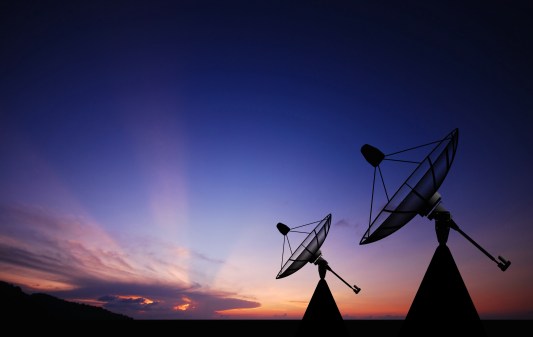Microsoft launches new platform to bring its cloud to space

Microsoft’s cloud computing platform Azure is going to space.
The company announced the launch of Azure Space on Tuesday with partnerships across the space industry targeting both private and public customers interested in the great beyond.
Azure Space will serve those looking to store space-based data as well as ground-based consumers seeking to benefit from the expanded connectivity Azure Space will provide. The service will link Azure’s existing cloud platform with new data centers and a network of satellites launched by private companies like SpaceX — even joining up with Starlink, the innovative company’s plan to use satellites to bring high-speed internet across the globe.
The Department of Defense could be a major beneficiary of this new service line, given the groundwork Microsoft has laid with the military services in recent years. The company won the Department of Defense‘s Joint Enterprise Defense Infrastructure (JEDI) cloud contract, which is awaiting the go-ahead as the procurement is under protest. And Azure recently earned high-level security certifications to handle sensitive DOD data.
“Our approach helps to address some of the toughest technology challenges that our customers face in space: dealing with the vast amount of data generated from satellites, bringing cloud services and bandwidth to the most remote locations, and designing highly complex space systems,” Tom Keane, corporate vice president for Azure Global, said in an announcement.
The recently created Space Force could be one of Azure Space’s first targets for potential government customers as the company already works on the Air Force‘s Commercially Augmented Space Inter Networked Operations (CASINO) project to store and manage space data collected by satellites. Azure Space will generate similar work for Microsoft, which has sought to expand its work with the DOD.
The new project comes after the company launched its ground-stations-as-a-service program, Azure Orbital in September. The two programs together will allow customers to manage data in Azure while using the company’s ground stations to down- and up-link data between space and Earth.
Microsoft, however, isn’t alone in recognizing the need for cloud storage and data processing power for the massive amounts of data satellites generate. Its biggest competitor Amazon was the first cloud service provider to venture into this new world launching its Aerospace and Satellites Solutions division earlier this year, headed by retired Air Force Maj. Gen. Clint Crosier, the former director of planning for the U.S. Space Force. And nearly two years before that, Amazon Web Services made its first bet on space with the introduction of its Ground Station platform — a fully managed service to allow customers to use the cloud to more easily connect to orbiting satellites and downlink and process their space data.





